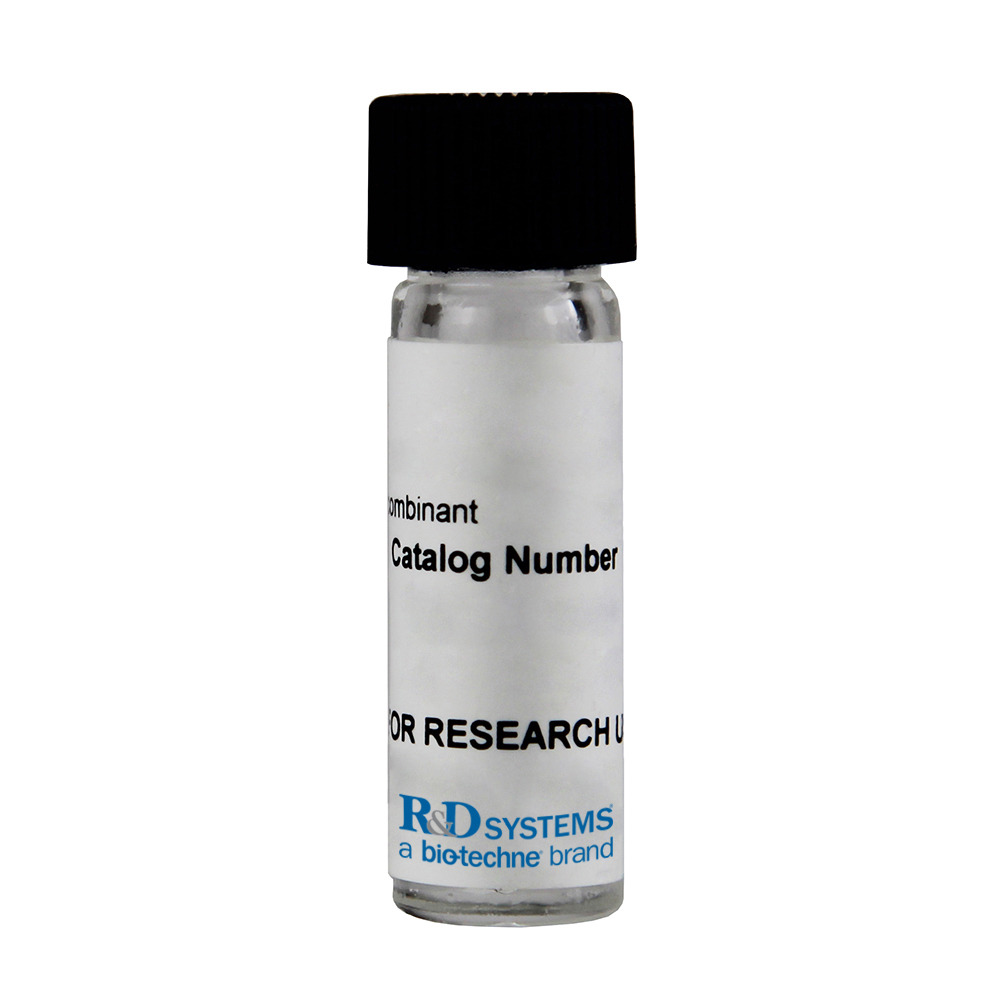 全部商品分类
全部商品分类

 下载产品说明书
下载产品说明书 下载SDS
下载SDS 用小程序,查商品更便捷
用小程序,查商品更便捷


 收藏
收藏
 对比
对比 咨询
咨询Carrier Free
CF stands for Carrier Free (CF). We typically add Bovine Serum Albumin (BSA) as a carrier protein to our recombinant proteins. Adding a carrier protein enhances protein stability, increases shelf-life, and allows the recombinant protein to be stored at a more dilute concentration. The carrier free version does not contain BSA.
In general, we advise purchasing the recombinant protein with BSA for use in cell or tissue culture, or as an ELISA standard. In contrast, the carrier free protein is recommended for applications, in which the presence of BSA could interfere.
9586-GH
| Formulation | Supplied as a 0.2 μm filtered solution in Tris and NaCl. |
| Shipping | The product is shipped with polar packs. Upon receipt, store it immediately at the temperature recommended below. |
| Stability & Storage: | Use a manual defrost freezer and avoid repeated freeze-thaw cycles.
|
Recombinant A. tubingensis PNGase Protein, CF Summary
Product Specifications
Leu22-Ser557 (F78I, E352G, P381S, S406Q, T412S, S414F, S451T and S555T), with an N-terminal 6-His tag
Analysis

Background: PNGase At
Glycoamidases are used extensively to deglycosylate asparagine-linked glycoproteins to obtain intact N-glycans and core proteins, thus are vital for scientists to understand the structure and function of these glycoproteins. A well known glycoamidase is peptide-N4-(N-acetyl-beta -D-glucosaminyl) asparaginase amidase F (PNGase F), an enzyme native to Flavobacterium meningosepticum (1). Another glycoamidase, native to fungus Aspergillus tubingensis, called PNGase At, has similar function but distinct substrate specificity coverage. Compared to PNGase F, PNGase At has broader substrate specificity, wider pH activity curve, and can deglycosylate those N-glycans with alpha 1-3 fucosylated core structure, which is totally resistant to PNGase F (2).





